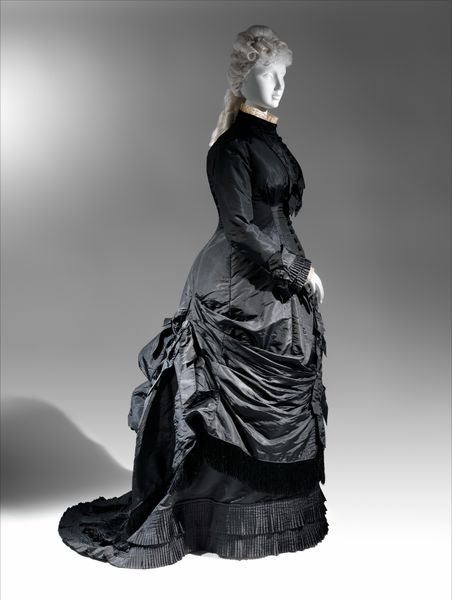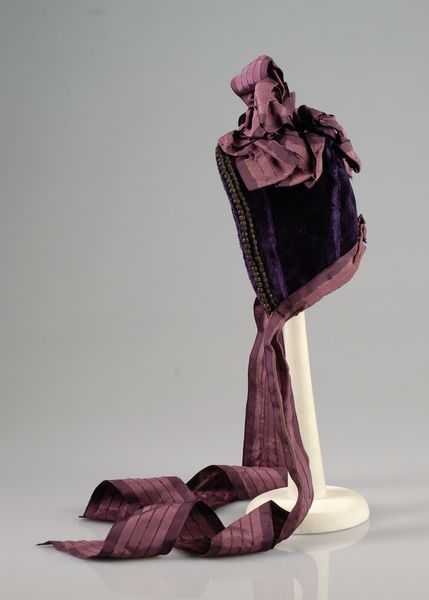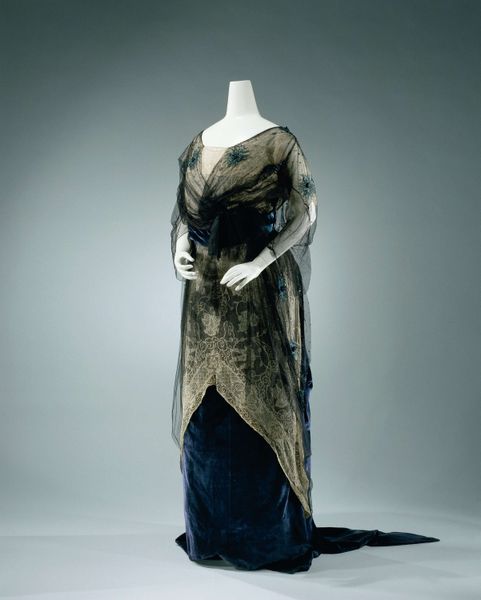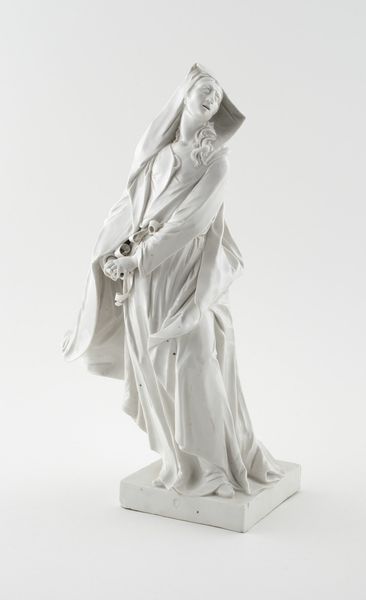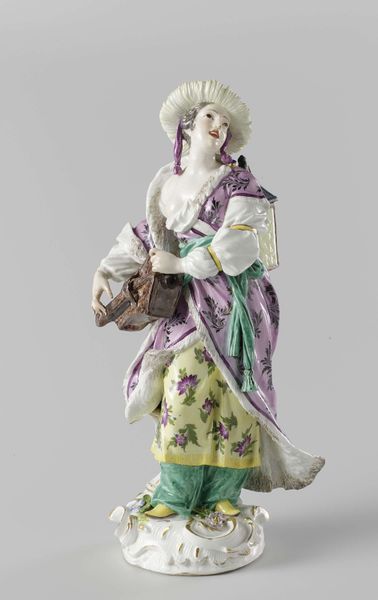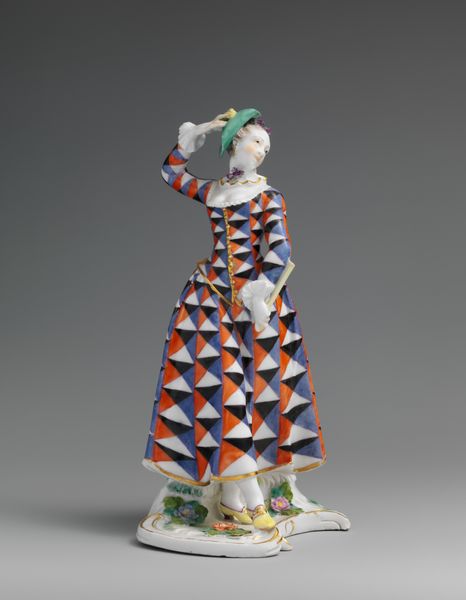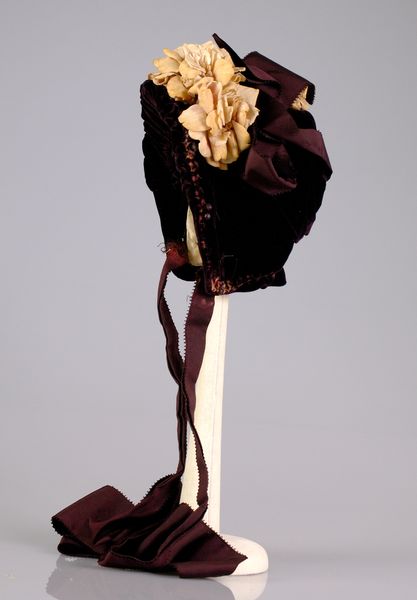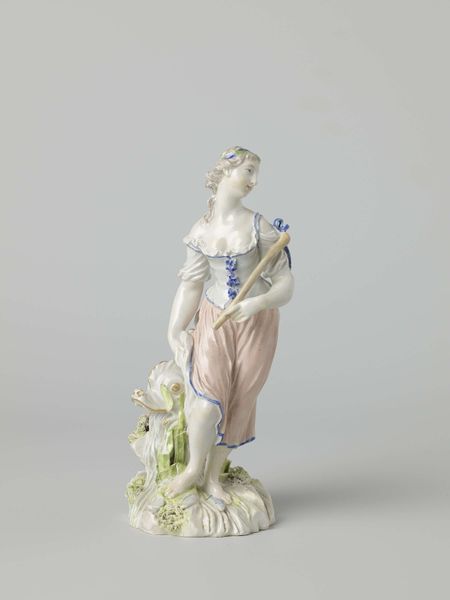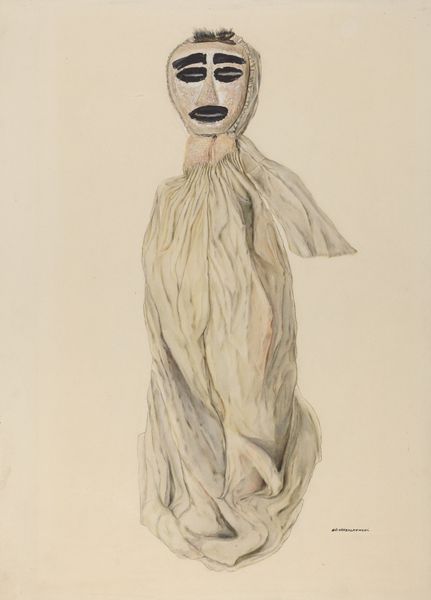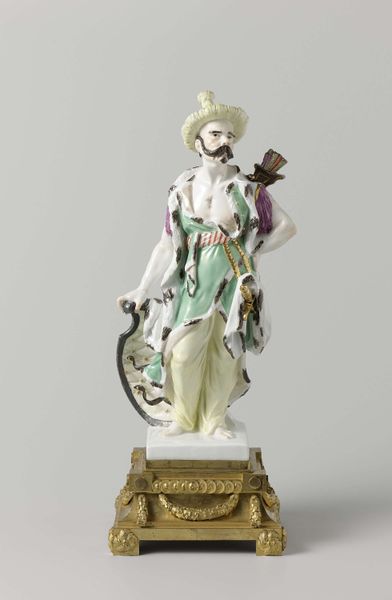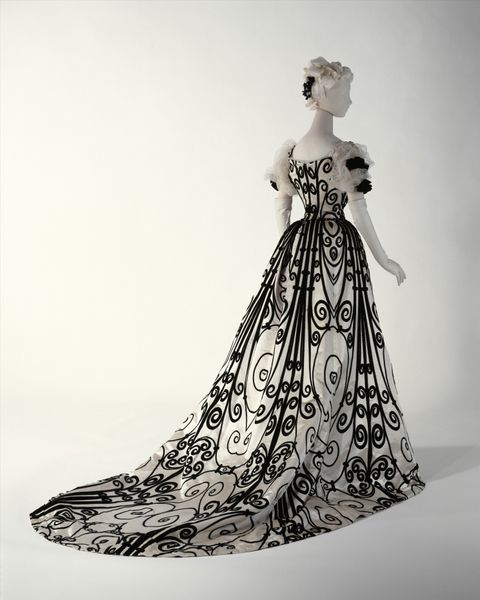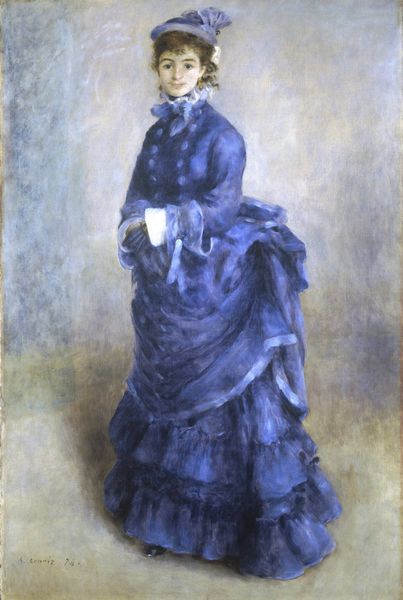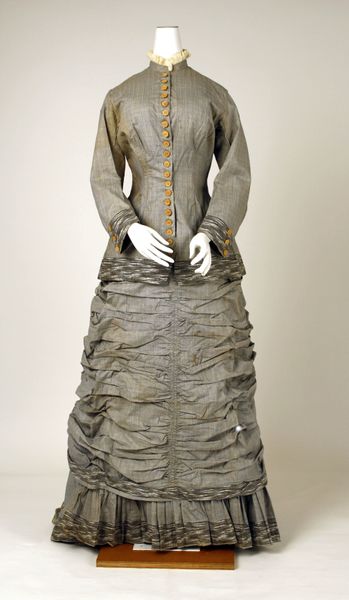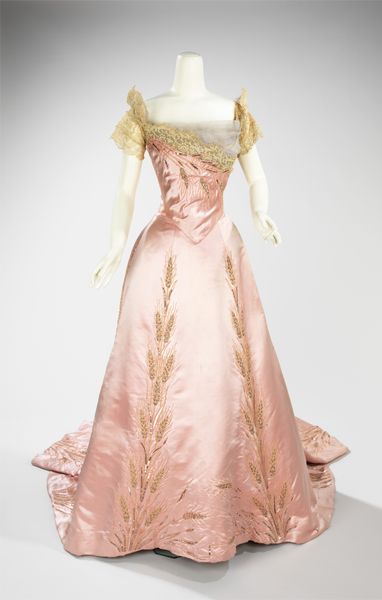
#
3d sculpting
#
3d model
#
3d printed part
#
rounded shape
#
jewelry design
#
3d character model
#
sculptural image
#
unrealistic statue
#
3d modeling
#
3d character modeling
Dimensions: height 42 cm, width 19.3 cm, depth 21.5 cm
Copyright: Rijks Museum: Open Domain
Curator: What a striking object. I am immediately drawn to its unusual colour palette and strange elegance. Editor: Today, we are examining "Figure in the shape of a woman with a hat", crafted sometime between 1911 and 1917 by the KPM, or Königliche Porzellan Manufaktur. It seems almost melancholy, doesn't it? Curator: Absolutely. The formal qualities speak volumes. The downward gaze, the cool blues, the delicate pearls – it conveys a profound sense of introspection. But I also note the crisp geometries of the hat compared to the texture in the dress. Editor: Let's not forget this is porcelain. KPM was a state-owned company, meaning this object's existence is inextricably linked to imperial patronage and, perhaps, a desire to reflect bourgeoise tastes and fashion. Consider the labour involved. Each stage of porcelain production was a complex process involving many different crafts people: the mould-makers, casters, painters. Curator: A powerful observation. However, isolating the material from its form diminishes the artist's intention. Look at the intentional contrast between the fluid lines of the gown and the sharp angles of the hat. This interplay suggests an underlying tension within the subject herself. Editor: And that hat isn't just any hat. The fashionable attire screams privilege, while the material reality hints at potential overproduction—KPM often sought to mass-produce luxury goods accessible to a growing middle class, while catering to tastes within elite circles. This reflects a society stratified by access to resources and labor, but the image is still, very stylish. Curator: Point taken, but the aesthetic unity is what captivates me. Every formal choice enhances this figure's contemplative essence. It beckons a formal assessment—a semiotic study. How do you react, seeing the finished object? Editor: The complexities are more pronounced to me. Recognizing the social framework reminds me the objects always encode their makers and patrons.
Comments
No comments
Be the first to comment and join the conversation on the ultimate creative platform.
